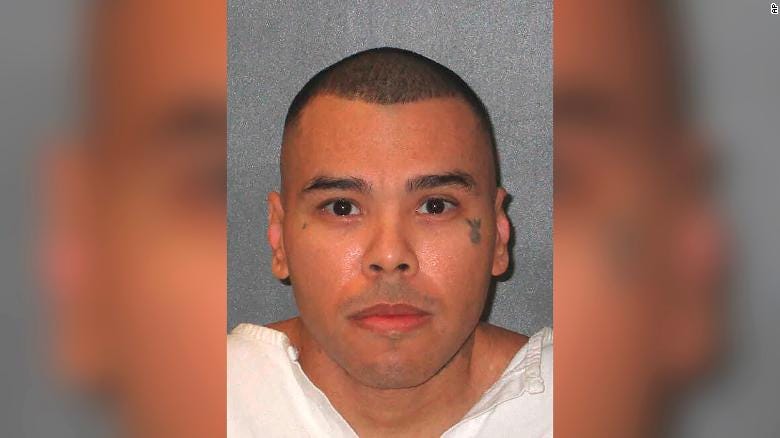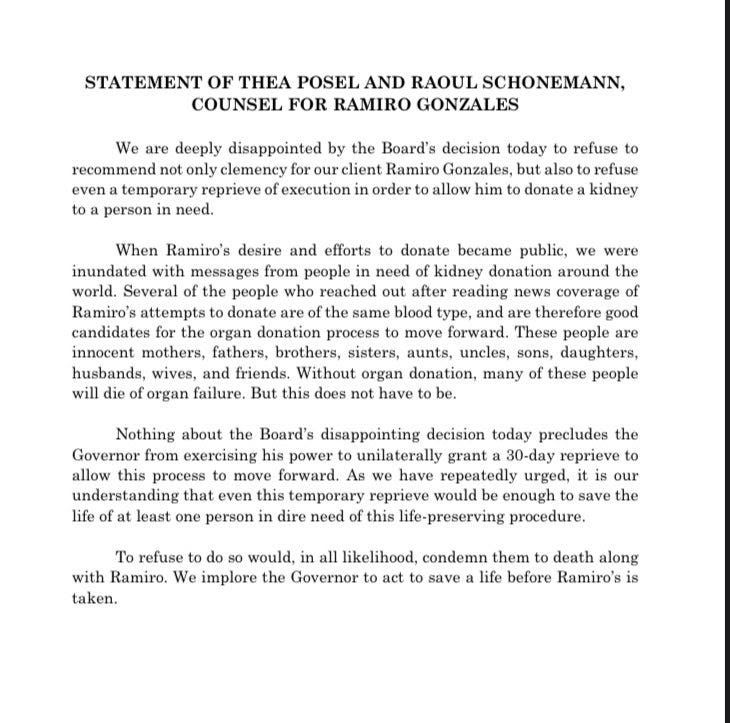
An inmate set to be put to death in just two days is asking the courts in Texas for a stay of execution so that he might donate one of his kidneys.
Ramiro Gonzales, 39, was convicted in 2006 for the 2001 murder of Bridget Townsend, and after 22 years on death row, he is scheduled to receive a lethal injection on July 13. But on June 29, Texas Gov. Greg Abbott received a letter from Cantor Michael Zoosman.
An ordained Jewish clergyman from Maryland, federal chaplain and founder of L’chaim! Jews Against the Death Penalty, Zoosman had been corresponding by mail with Gonzales, and he believes Gonzales’s request is altruistic and not merely meant to delay his sentence being carried out.
“He still wants to save a life,” Zoosman told CNN.
Gonzales confessed to Townsend’s murder in 2002 after being arrested for an unrelated offense and showed authorities where her body had been buried, according to court records, which state Gonzales had broken into the home Townsend shared with her boyfriend, who supplied Gonzales with drugs.
Gonzales was hoping to steal cocaine and found Townsend in the home. He kidnapped her and transported her to a different location, near his family’s ranch, then sexually assaulted and shot her.
Zoosman said Gonzales has “never made excuses for what he’d done” and said the convicted killer wants to save a stranger’s life to help set the scales right in return for the life he took before he dies, and he settled on donating a kidney after Zoosman mentioned a member of his congregation needed one.
“I just mentioned it offhand in a letter to him… and he jumped on it,” Zoosman said.
Gonzales was evaluated and determined to be an “excellent candidate” for donation by the University of Texas Medical Branch at Galveston because of his rare B blood type, though it also meant he was not a match for the person Zoosman mentioned in his letter.
“On his own volition, he sought through his legal team to find another way to do it, to become an altruistic kidney donor,” Zoosman said of Gonzales’s attempts to donate his kidney without a recipient already in mind. “Never in his correspondence with me, did he indicate that he felt that this would be a way out or a way to save his life. He never expected it to lead to his clemency.”
Gonzales’s attorneys however told CNN that they were informed by the state’s criminal justice department that he would not be allowed to donate the organ because it could lead to an “'uncertain timeline, thereby possibly interfering with the court-ordered execution date,” despite his exemplary donor status.
Gonzales had a number of legal appeals in play, including a request to commute his sentence to life in prison, in addition to the 30- and 180-day reprieves he has filed to allow for his organ donation.
On Monday, the Texas Board of Pardons and Paroles denied Gonzales's request for a temporary stay, and now his desire to donate a healthy organ to someone in need rests in the hands of Gov. Greg Abbott, who can still issue a 30-day stay of execution.
Failing that, Gonzales will be put to death on Wednesday as scheduled. His lawyers issued a statement saying they were "deeply disappointed" after learning of the parole board's decision Monday.


